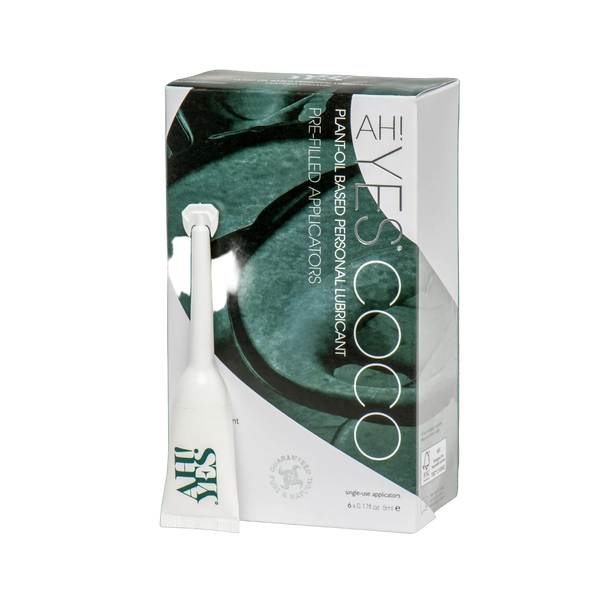Sex can be loving, fun, intimate, messy, and everything in between. It can leave you out of breath with a rosy glow and a smile on your face. But it can also leave you feeling worried from time to time.
If you’ve just done the deed and noticed spotting on the sheets, you might be wondering “why am I bleeding after sex”? We get it. It’s alarming – but not always cause for concern.
In this blog we’ll give you the lowdown on bleeding after sex, talk you through signs and symptoms to be aware of, and clue you in on everything from pain during sex, to dyspareunia.
Never heard of dyspareunia?
Read on!
Is it normal to bleed after sex?
Bleeding after sex and experiencing brown discharge after sex can stop you in your tracks if you’re not on your period, but it’s actually really common. You might even find that you have some bleeding in the days that follow intercourse. Again, this is perfectly normal. However, if you’re regularly bleeding after sex, and it’s been a while since your last pap smear or pelvic exam, we’d advise mentioning it to your doctor.
What causes bleeding after sex?
Your cervix is chock-full of blood vessels that can be disturbed during penetrative sex. The size of your partner’s penis, or the size of the vibrator or dildo you use, can have an impact – as can certain sex positions.
When your body becomes aroused, your vagina and cervix swell. This makes your blood vessels fuller and more sensitive – which is great for pleasure but can increase the likelihood of bleeding after sex. Other possible causes include:
- Having penetrative sex that’s deep, rough, or long-lasting
- Pregnancy
- Fluctuating hormonal cycles
- Perimenopause and the menopause
- Leftover blood from your menstrual period
- Blood-thinning medications
- PCOS
- Endometriosis
- Cervicitis
- Cervical polyps
- Sexually transmitted infections
- Cancer (in rare cases)
When should I be worried about bleeding after sex?
If you have other symptoms alongside post-coital bleeding – such as pain, itching, burning, thick white discharge, or a foul odor from your vagina – you should see your doctor. As well as STIs, these symptoms could indicate a yeast infection. Yeast infections often cause vaginal bleeding after sex due to inflammation of the vagina.
On rare occasions, bleeding after sex can be a sign of cervical or ovarian cancer. It’s therefore crucial to attend regular checkups with your ob/gyn. That way, you can be screened for early signs of cancers of the ovaries, cervix, or uterus.
How can I prevent bleeding after sex?
While it’s not always possible to stop yourself bleeding after sex, there are some things you can do to reduce the chances and make things more comfortable. Try:
- Switching positions so you can control the depth of penetration
- Asking your partner to go slower or be more gentle
- Using a lubricant during sex
Our estrogen levels drop during perimenopause (or forced menopause following a hysterectomy). This can lead to vaginal dryness and vaginal atrophy, which makes you more prone to bleeding after sex. Using a pH matched vaginal moisturizer, like AH! YES® VM – which provides up to three days’ relief from vaginal dryness – can increase the moisture content of your vaginal tissues.
When you’re having sex or masturbating, an organic lubricant like AH! YES® WB, AH! YES® OB, or AH! YES® COCO can make sex more comfortable and help to reduce the friction that can lead to soreness and bleeding.
Is it normal to bleed during sex?
Bleeding during sex is just as common as bleeding after sex – and the causes (as you’d probably expect) are much the same. Aggressive sex or sex when your vagina is dry can lead to tears in the walls of the vagina which, even if they aren’t painful, can cause bleeding.
The same health conditions that can cause post-coital bleeding – such as PCOS, Endometriosis, and STIs – can also cause bleeding during sex. And the advice on when to see your doctor still stands.
Can I still enjoy sex if I bleed after intercourse?
If you’re experiencing bleeding after sex, it might be affecting your enjoyment – and no one should be living with a sub-par sex life! Here are some tips to help:
- Talk with your partner so you can work together to make sex pleasurable and pain-free.
- Try a position that’s not quite as deep to reduce your chances of bleeding.
- Use a lubricant to reduce friction and make sex more comfortable.
- Try a vaginal moisturizer to improve your overall vaginal comfort.
- Extend foreplay to help you relax and enjoy intercourse.
- Put a towel down if you’re worried about bleeding on your bed sheets.
But as well as bleeding, you might have discomfort on your mind…
Why does it hurt to have sex?
Three out of four women in the United States[i] have reported feeling pain during intercourse. Painful sex can be the result of certain health conditions, such as:
Contact dermatitis (a skin issue that can cause tears or cracks in the vulva)
- Endometriosis
- Vulvodynia
- Vaginitis
- Vaginismus
- Ovarian cysts
- Pelvic inflammatory disease (PID)
It can also be the result of:
- Vaginal dryness
- Extreme fatigue
- Stress
- Issues within your relationship
- Shame, guilt, fear, or anxiety around sex
- Changing estrogen levels or atrophy
- Allergic reactions to perfumed soaps or douches
- Medications that effect sexual desire, arousal, or lubrication
If you’re experiencing painful sex, a lubricant can help to ease discomfort – but you should seek medical advice to rule out any underlying health conditions.
What is dyspareunia?
Right, here we are. Dyspareunia.
If you’ve never heard of it, you’re not alone. But dyspareunia is simply the scientific medical term for pain felt before, during, and after sex. The pain can occur anywhere in your genital area, including:
- In and around the vulva
- In the very opening of the vagina (the vestibule)
- In the perineum (the soft tissue between the vagina and the anus)
- Within the vagina
It’s not uncommon for women to feel pain in their lower back, pelvic area, uterus, or bladder, which can make sex uncomfortable. Again, it’s always advisable to seek medical advice here.
Make sure you’re monitoring your vaginal health with regular visits to your doctor, gynecologist, or primary care physician. It’s also super important to keep an eye on how often you bleed after sex, how much you bleed after sex, and any other signs and symptoms that go along with post-coital bleeding.
We believe every woman deserves great intimate health – which is why we’re committed to Making Vaginas Happy! Find out more.
References:
[i] Why Is Sex Painful? 7 Causes and Diagnosis (healthline.com)
Empower yourself
Read more about the changes your body goes through during peri menopause and post menopause.










